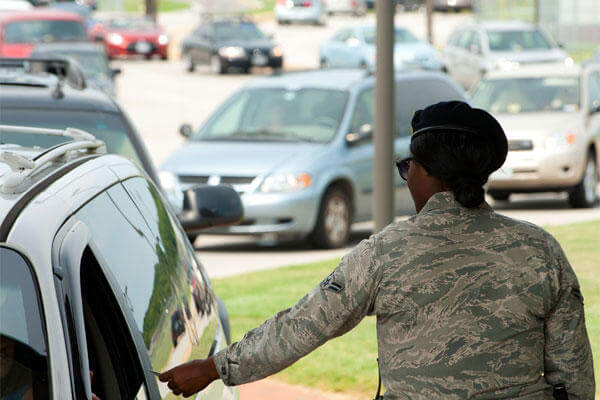The U.S Defense Department will "soon" provide formal instructions to base leaders on blocking visitors from using driver licenses from five states to access installations, officials said Thursday.
Illinois, New Mexico, Missouri, Washington and Minnesota missed a federal deadline this month to upgrade their state-issued identification cards to contain new security measures called for in a 2005 law known as the REAL ID Act.
Homeland Security and Pentagon officials say as a result those IDs can no longer be used to access federal buildings, including military installations.
"DoD has formal guidance for access control and has issued informal [Real ID Act] guidance," Cmdr. Linda Rojas said in a statement. "Additional formal guidance regarding authorized identification for physical access is in staffing and is expected to be published soon."
Visitors who are accompanied in the vehicle by a Defense Department card holder can continue to access the installations using any state's driver's license, officials said. Visitors from Minnesota and Washington who hold an Enhanced Driver's License can still use those IDs to get a pass, they said.
Several military bases, including Fort Bragg in North Carolina and White Sands Missile Range in New Mexico, have already announced plans to no longer accept state-issued ID cards from those states. Others, like Joint-Base Lewis McChord in Washington State, have said they are in the process of developing their policy.
Rojas said an exception to the new rule can be made by base commanders on a case-by-case basis. For example, medical emergencies or those looking to gain a pass to base to apply for benefits may be able to receive a waiver. And commanders can choose to waive the rule for a special circumstance or event, such as a parent placed on a guest list for a basic training graduation, Rojas said.
Pentagon officials said the changes have caused some confusion and inconsistency about what alternate forms of identification are acceptable, but they are working on additional guidance to clear-up the issue.
"As a result of the REAL ID issues that have surfaced in the past week, the DoD Physical Security Program Office is working follow-on guidance to specifically and permanently address other identification cards that can be used to facilitate unescorted access or issuance of an installation pass," Rojas said.
Currently, accepted forms of identification for granting a base visitor's pass include a U.S. passport, any official ID card from any of the compliant states, Native American tribal documents and any Defense Department or federal ID card.
-- Amy Bushatz can be reached at amy.bushatz@military.com. Follow her on Twitter at @amybushatz.




























